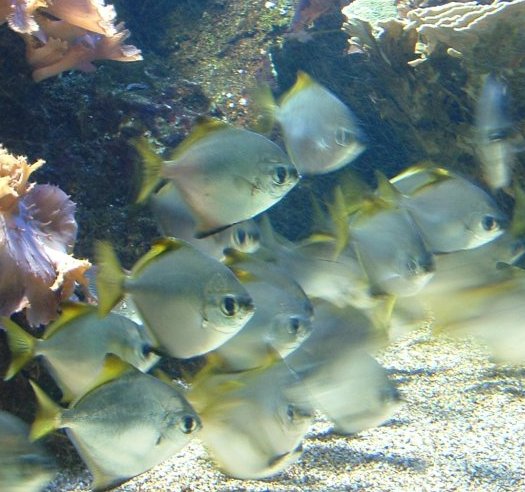|
The aim of this workshop is to concern itself with the use of emergent computing
and self-organization modelling within various applications of complex systems.
We focus our attention both on the innovative concepts and implementations to
model self-organizations, but also the relevant applicative domains
which can use them in an efficient way.
For the first part, collective intelligence and dynamic combinatorics
are conceptual tools which can be used to model self-organization processes.
For the second part, geographical information systems (GIS),
cognitive sciences and natural ecosystems are some relevant applicative domains
on which we propose to focus our attention.
Different sessions will be developed covering the following topics:
- GIS and Complexity:
Geographical Information Systems are powerful tools which
manage some great amounts of data in complicated way.
But, they can be also the basis
of complex self-organizing systems revealed by some applications.
These applications can concern their own development like
their updating processes or some spatial-temporal conceptual
implementations for their evolution.
Some other major applications on GIS are decision support systems
for modelling social or urban development, for example.
- Collective Intelligence and neuronal learning:
We focus our attention for this session on self-organization models based on
neuronal learning, using for example Kohonen Maps. We are also interested
by collective intelligence concepts like artificial ant systems or immune systems.
Innovative concepts or applications of these models are welcome.
- Dynamic Combinatorics and Complexity:
Dynamics Combinatorics deals with evolvable structures which motion
can follow some properties or can be in correspondence to some enumerative
structures. We focus our attention on some evolutionary systems build by
elementary rules and leading to emergent properties. The goal is to find
a better understanding of evolvable complex systems by this
methodologies.
- Cognitive Science Modelling:
Cognition is typically the result of complex processes. Many works try to
give some formal description to better understanding the involved complex
interactions. We suggest here, for example, and without exclusivity,
some contributions on
the interaction emotion-cognition-action, both on experimental
approaches but also on modelling approaches. Multi-disciplinary studies
are welcome.
- Natural Ecosystems Modelling:
Natural ecosystems are complex systems. Simulations are often used to describe
some complex interaction networks between involved species. The detection of
dynamical natural structures or organizations like food chains is one of the
great challenge of the Individual Based Models (IBM). This session deals with
some generic methodologies which allow to model the detected organizations
inside the simulations during its run. The study of the evolution and the
stabilization of such detected structures are
welcome for this session. Multi-scale processes, heterogeneous modelling
are some thrilling solutions for example.
In progress.
The submission must follow
the ESM'06 process
Submit your proposal
here
- Aziz-Alaoui M.A., Le Havre University, France
- Babkin E., Higher School of Economics (Nihzny Novgorod), Russia
- Bennani Y., Paris XIII University, France
- Bertelle C., Le Havre University, France
- Cotsaftis M., LTME/ECE, Paris, France
- Duchamp G.H.E., Paris XIII University, France
- Guinand F., Le Havre University, France
- Hadj Kacem H., Sfax University, Tunisie
- Iantovics B.L., Petru Maior University of Tg. Mures, Romania
- Kadri-Dahmani H., Paris XIII University, France
- Obaidat M.S., Monmouth University, USA
- Olivier D., Le Havre University, France
- Oqeili S., Al Balqa Applied University, Jordan
- Osmani A., Paris XIII University, France
- Ramos V., Technical University of Lisbon, Portugal
- Sadoun B., Al Balqa Applied University, Jordan
- Toumazet F., Paris XIII University, France
- Wang R., Massey University, New Zealand
To any additional informations, please contact the following organizators using this
mail: cossom06@gmail.com
- Bertelle C., LITIS, Le Havre University
25 Rue Ph. Lebon, BP 540, 76058 Le Havre Cedex, France.
- Duchamp G.H.E., LIPN, Paris 13 University
99 avenue Jean-Baptiste Clement, 93430 Villetaneuse, France.
- Kadri-Dahmani H., LIPN, Paris 13 University
99 avenue Jean-Baptiste Clement, 93430 Villetaneuse, France.
- September 13, 2006 : Submission of full papers (5 to 8 proceeding pages)
- September 20, 2006 : Notification of acceptance or rejection
- October 5, 2006 : Authors provide camera-ready manuscript
- October 23-25, 2006: ESM 2006 Conference & CoSSoM'06 workshop at LAAS, Toulouse, France
See the web site of the
ESM'2006 conference.
|

